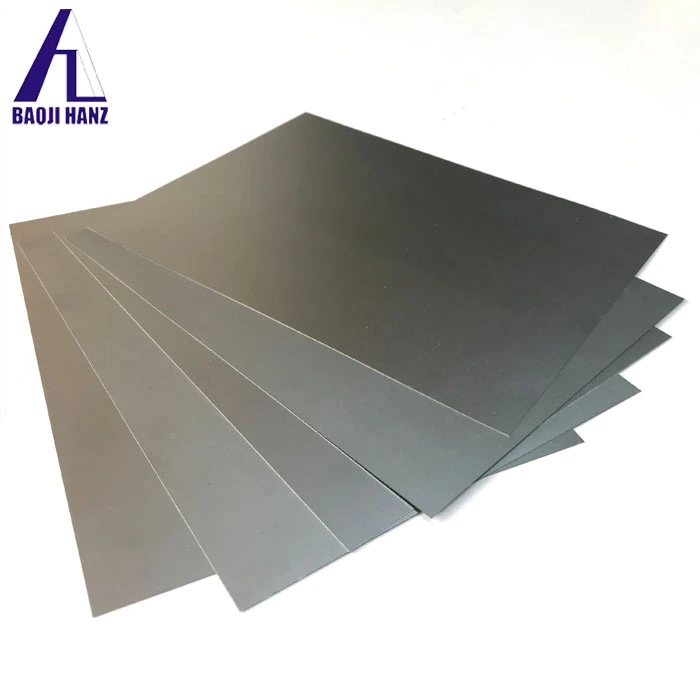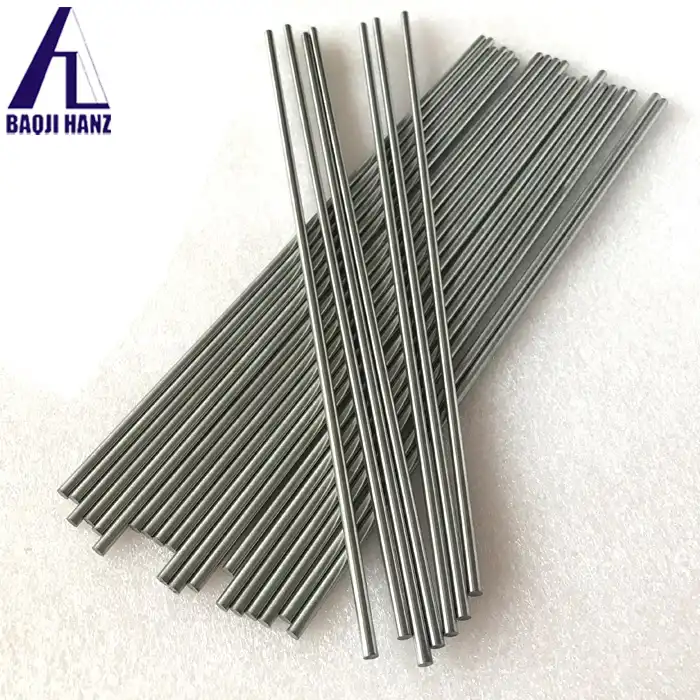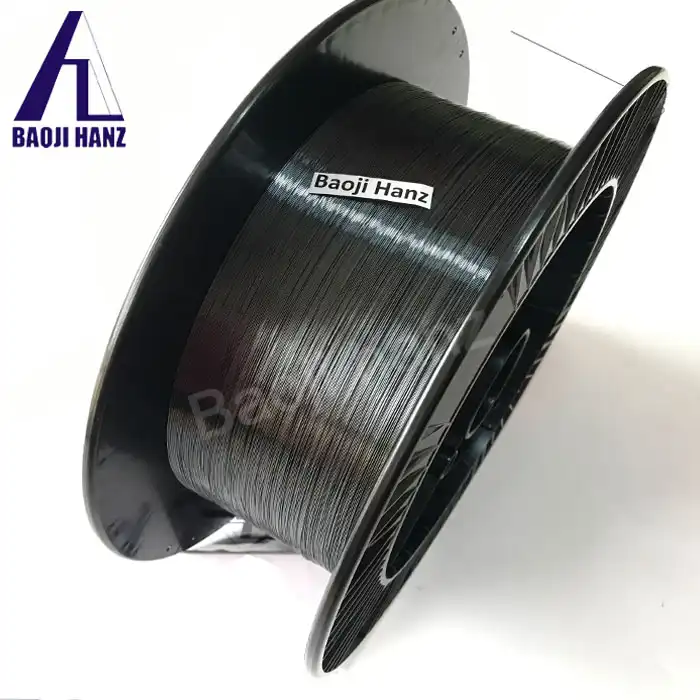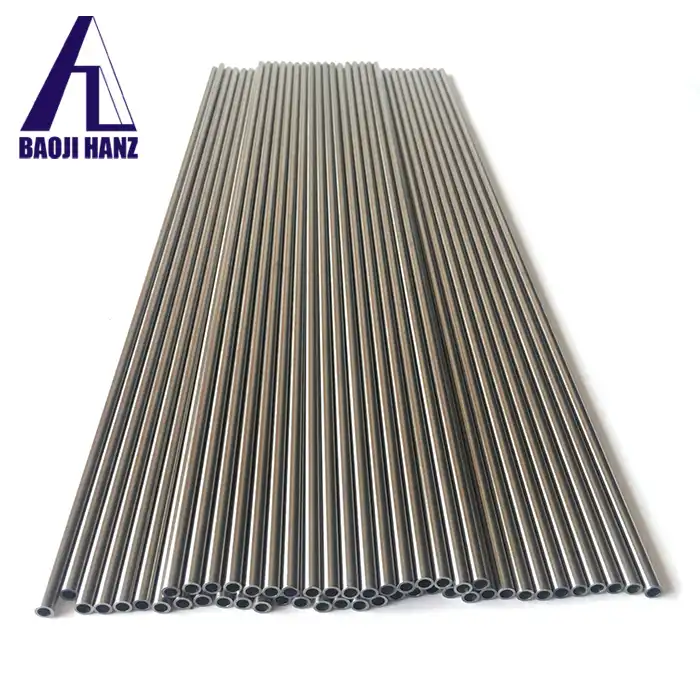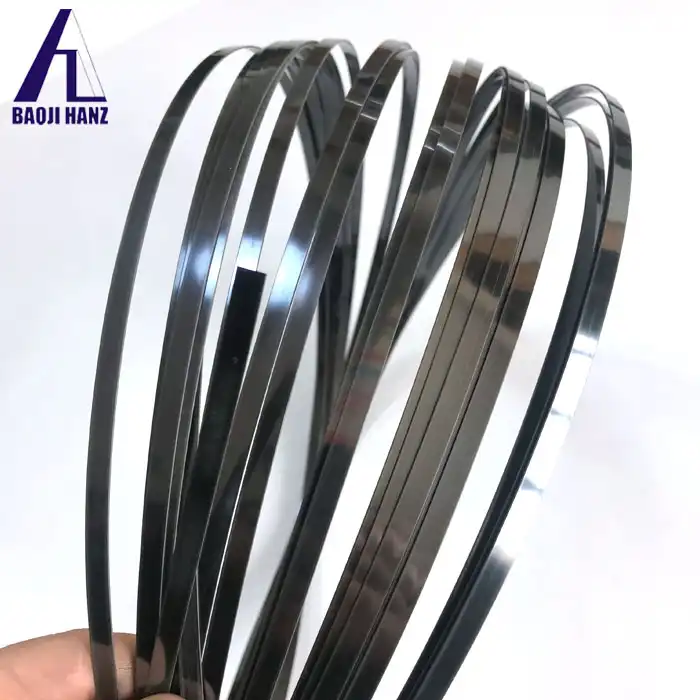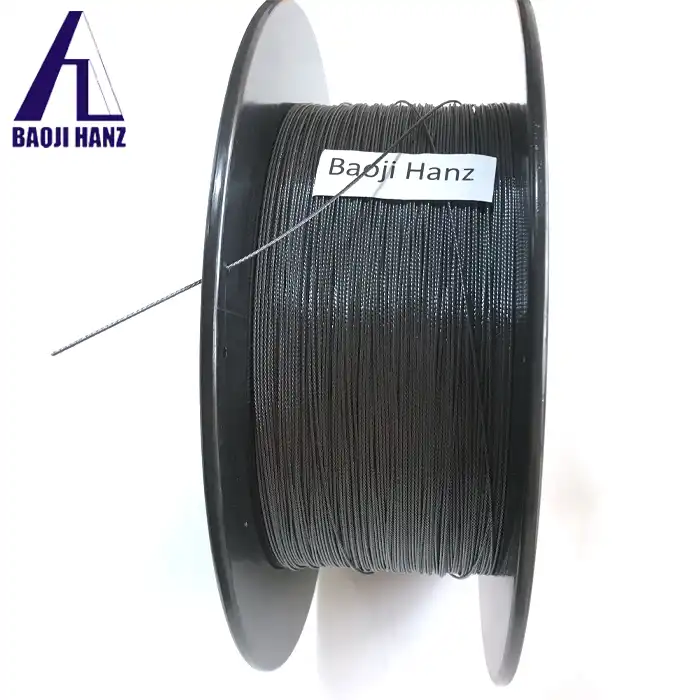Is Nickel-Titanium Alloy Wire Rope corrosion-resistant?
2025-05-22 19:42:45
When it comes to demanding industrial applications requiring durability and resilience against harsh environments, the question of corrosion resistance becomes paramount for material selection. Nickel-Titanium Alloy Wire Rope, a specialized product developed through advanced metallurgical processes, has garnered significant attention across various industries precisely because of its exceptional properties, with corrosion resistance being one of its most valuable attributes.
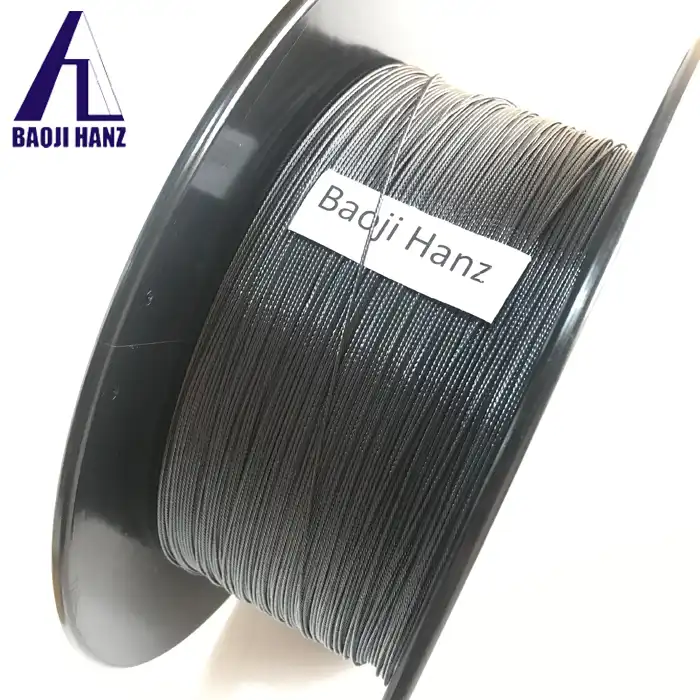
Nickel-Titanium Alloy Wire Rope demonstrates remarkable corrosion resistance, making it an ideal choice for applications in challenging environments. This advanced material, composed of nickel and titanium in specific proportions, forms a naturally occurring titanium oxide layer on its surface when exposed to oxygen. This passive film acts as a protective barrier, preventing further oxidation and corrosion, even when the material is subjected to harsh conditions such as seawater, bodily fluids, or industrial chemicals. Unlike conventional steel wire ropes that require frequent maintenance and replacement due to corrosion issues, Nickel-Titanium Alloy Wire Rope maintains its structural integrity and performance characteristics over extended periods, resulting in lower lifecycle costs and enhanced reliability for critical applications across aerospace, medical, and marine industries.
Understanding the Corrosion Resistance Mechanism of Nickel-Titanium Alloy Wire Rope
Chemical Composition and Passive Layer Formation
The exceptional corrosion resistance of Nickel-Titanium Alloy Wire Rope stems primarily from its unique chemical composition and metallurgical structure. At Baoji Hanz Metal Material Co., Ltd., our precision-manufactured wire ropes contain a carefully controlled ratio of nickel and titanium, typically near-equiatomic (approximately 55% nickel and 45% titanium by weight). This specific composition enables the spontaneous formation of a titanium oxide (TiO₂) passive layer on the surface when exposed to oxygen-containing environments. This passive film, merely nanometers thick, serves as a remarkably effective barrier against corrosive agents. The density of 6.45 g/cm³ and high melting point range of 1240-1310°C of our Nickel-Titanium Alloy Wire Rope further contribute to its stability in extreme conditions. Unlike conventional metal wire ropes that may experience galvanic corrosion when different metals are in contact, the homogeneous nature of Nickel-Titanium Alloy Wire Rope eliminates this risk, providing consistent performance in diverse applications. Our production process, which includes vacuum melting to ensure uniform composition and subsequent heat treatments, optimizes the corrosion resistance properties of the final product. The passive layer regenerates itself if mechanically damaged, offering continuous protection throughout the service life of the wire rope, making it particularly valuable for long-term installations in corrosive environments.
Comparative Corrosion Resistance Analysis
When evaluating material options for demanding applications, understanding comparative performance becomes crucial for informed decision-making. Nickel-Titanium Alloy Wire Rope demonstrates superior corrosion resistance compared to conventional materials such as carbon steel, stainless steel, and even other specialty alloys. In accelerated salt spray testing, our Nickel-Titanium Alloy Wire Rope with a diameter of 1mm shows minimal signs of degradation after 1,000+ hours of exposure, while conventional steel wire ropes typically exhibit significant corrosion within 200-300 hours. The high tensile strength of 800-1500 MPa remains largely unchanged after exposure to corrosive environments, whereas conventional materials often experience strength degradation of 15-30%. In acidic environments with pH levels as low as 3, Nickel-Titanium Alloy Wire Rope maintains its structural integrity, while most stainless steel variants show measurable mass loss. Marine environment testing demonstrates that our product can withstand continuous seawater immersion for years without significant performance degradation, making it ideal for offshore applications. The material's electrochemical properties, including a noble corrosion potential and low current density, further validate its superior resistance to various forms of corrosion, including pitting and crevice corrosion, which are common failure modes in challenging environments. Baoji Hanz Metal Material Co., Ltd. substantiates these performance characteristics through rigorous testing protocols certified under ISO 9001:2015 and ISO 13485:2016 standards, ensuring consistent quality and reliability.
Environmental Factors Influencing Corrosion Behavior
The corrosion resistance of Nickel-Titanium Alloy Wire Rope, while inherently excellent, does vary depending on specific environmental conditions and operational parameters. Understanding these factors is essential for optimal material selection and application design. Temperature significantly impacts corrosion behavior, with our Nickel-Titanium Alloy Wire Rope maintaining its protective characteristics across a wide temperature range, from cryogenic conditions to elevated temperatures approaching 350°C. However, in extremely high-temperature environments (beyond 500°C) with the presence of certain halides, accelerated corrosion may occur due to the breakdown of the passive oxide layer. Similarly, the pH level of the surrounding medium influences corrosion rates, with our product demonstrating optimal resistance in pH ranges of 4-10. In highly acidic environments containing hydrofluoric acid, special consideration may be necessary as this specific acid can attack the protective titanium oxide layer. Mechanical stress can also influence corrosion behavior through a phenomenon known as stress corrosion cracking (SCC), though Nickel-Titanium Alloy Wire Rope shows remarkable resistance to this failure mode compared to conventional alloys. The presence of dissimilar metals in the application system may introduce galvanic corrosion risks, although the relatively noble electrochemical position of nickel-titanium alloys minimizes this concern in most practical applications. At Baoji Hanz Metal Material Co., Ltd., we provide specific grades of Nickel-Titanium Alloy Wire Rope optimized for particular environmental conditions, ensuring maximum corrosion resistance and service life for each unique application scenario.
Applications Leveraging the Corrosion Resistance of Nickel-Titanium Alloy Wire Rope
Marine and Offshore Engineering Applications
The exceptional corrosion resistance of Nickel-Titanium Alloy Wire Rope makes it an invaluable material for marine and offshore engineering applications where exposure to seawater and harsh environmental conditions is inevitable. Conventional materials in these settings often suffer from accelerated degradation, leading to frequent maintenance cycles and potential system failures. Our Nickel-Titanium Alloy Wire Rope, with its density of 6.45 g/cm³ and tensile strength ranging from 800-1500 MPa, provides a robust solution that maintains structural integrity even after prolonged seawater exposure. In deep-sea exploration equipment, where replacement and maintenance are logistically challenging and extremely costly, the reliability of materials becomes paramount. Nickel-Titanium Alloy Wire Rope serves in critical applications such as tethering systems for remotely operated vehicles (ROVs), underwater sensor arrays, and maritime research instrumentation. Offshore oil and gas platforms utilize these specialized wire ropes for mooring lines, control cables, and safety systems due to their resistance to saltwater corrosion and marine biofouling. The material's superelasticity further enhances its performance in dynamic marine environments, allowing it to absorb sudden loads and movements from waves and currents without permanent deformation. Baoji Hanz Metal Material Co., Ltd. supplies customized Nickel-Titanium Alloy Wire Rope configurations with specific diameter specifications and tensile properties tailored to marine engineering requirements, all backed by our ISO certifications and extensive quality control processes. The reduced maintenance requirements and extended service life of these wire ropes translate to significant operational cost savings for maritime operations, making them an economically sound choice despite the higher initial investment compared to conventional materials.
Medical and Biomedical Device Applications
The biocompatibility and corrosion resistance of Nickel-Titanium Alloy Wire Rope in biological environments have revolutionized medical device design and implementation. When implanted in the human body or used in medical instrumentation, materials must withstand the corrosive effects of bodily fluids while remaining biocompatible and maintaining functional properties. Nickel-Titanium Alloy Wire Rope excels in this challenging environment, with its passive titanium oxide layer providing exceptional resistance to biocorrosion. In cardiovascular applications, ultra-fine Nickel-Titanium Alloy Wire Rope with precise 1mm diameter specifications serves as the structural component in guidewires, stent delivery systems, and embolic protection devices. Orthopedic surgery utilizes these wire ropes in bone fixation systems and minimally invasive surgical tools, where their combination of flexibility and strength proves invaluable. Dental applications leverage the material's unique properties for orthodontic wires and endodontic files that can withstand the corrosive oral environment. The material's shape memory effect, coupled with its corrosion resistance, enables the development of self-expanding medical devices that can be compressed for minimally invasive delivery and then expand to their functional shape at body temperature. Neurological interventions benefit from the material's kink resistance and excellent torque transmission capabilities in conjunction with its corrosion resistance. Baoji Hanz Metal Material Co., Ltd. manufactures Nickel-Titanium Alloy Wire Rope for medical applications under strict ISO 13485:2016 certification, ensuring the highest standards of quality and consistency required for medical-grade materials. The corrosion resistance in physiological environments not only ensures device longevity but also prevents potentially harmful metal ion release, contributing to overall patient safety and treatment efficacy.
Aerospace and Defense Industry Implementation
In aerospace and defense applications, where material failure can have catastrophic consequences, the corrosion resistance of Nickel-Titanium Alloy Wire Rope provides critical reliability under extreme operating conditions. Aircraft and spacecraft components are routinely exposed to temperature fluctuations, various atmospheric conditions, and mechanical stresses that can accelerate corrosion in conventional materials. Our Nickel-Titanium Alloy Wire Rope, with its melting point range of 1240-1310°C and high tensile strength, offers an exceptional solution for control systems, actuator mechanisms, and structural components. In aircraft landing gear systems, these wire ropes function reliably despite exposure to runway de-icing chemicals, atmospheric moisture, and mechanical stress. Satellite deployment mechanisms utilize Nickel-Titanium Alloy Wire Rope for reliable operation in the vacuum of space, where material outgassing and cold welding present significant challenges for conventional alloys. Military applications include robust control cables for naval vessels, corrosion-resistant components in unmanned aerial vehicles (UAVs), and reliable actuation systems for ordnance delivery. The combination of high strength-to-weight ratio and corrosion resistance makes these wire ropes particularly valuable for weight-sensitive aerospace applications where every gram matters for fuel efficiency and payload capacity. Baoji Hanz Metal Material Co., Ltd. supplies aerospace-grade Nickel-Titanium Alloy Wire Rope manufactured under stringent quality control protocols, ensuring compliance with industry-specific standards and requirements. The material's ability to withstand harsh environmental conditions while maintaining precise mechanical properties throughout extended service periods reduces maintenance requirements and enhances overall system reliability, making it a preferred choice for mission-critical aerospace and defense applications despite premium pricing compared to conventional wire rope materials.
Long-Term Performance and Maintenance Considerations for Nickel-Titanium Alloy Wire Rope
Fatigue Resistance and Durability in Corrosive Environments
The exceptional combination of corrosion resistance and fatigue performance makes Nickel-Titanium Alloy Wire Rope uniquely suited for applications requiring long-term reliability under cyclic loading in corrosive environments. Unlike conventional wire ropes that experience accelerated fatigue crack initiation and propagation in corrosive media, our Nickel-Titanium Alloy Wire Rope maintains its mechanical integrity through a remarkable synergy of material properties. The superelastic behavior allows the material to undergo significant strain (up to 8%) without permanent deformation, absorbing and distributing cyclic stresses that would cause conventional materials to fail prematurely. In corrosion fatigue testing, where specimens are simultaneously subjected to cyclic loading and corrosive media, Nickel-Titanium Alloy Wire Rope demonstrates a fatigue limit approximately 3-4 times higher than that of standard stainless steel wire ropes. This superior performance stems from the material's unique crystallographic structure and the protective titanium oxide layer that inhibits corrosion pit formation, which typically serves as stress concentration points and fatigue crack initiation sites. The material's density of 6.45 g/cm³ and carefully controlled production process at Baoji Hanz Metal Material Co., Ltd. ensure consistent mechanical properties throughout the wire rope cross-section, eliminating weak points that could compromise fatigue resistance. Long-term field performance data from marine applications shows that while conventional wire ropes might require replacement every 2-3 years due to corrosion fatigue, Nickel-Titanium Alloy Wire Rope can maintain functional integrity for 8-10 years or more under identical conditions, resulting in significant reductions in maintenance frequency and lifetime operational costs despite the higher initial investment.
Preventive Maintenance Strategies and Best Practices
While Nickel-Titanium Alloy Wire Rope offers superior corrosion resistance compared to conventional materials, implementing appropriate maintenance protocols can further extend its service life and ensure optimal performance in demanding applications. Contrary to common misconception, even highly corrosion-resistant materials benefit from periodic inspection and preventive maintenance. For installations in severe environments, quarterly visual inspections are recommended to identify any signs of mechanical damage to the protective oxide layer or potential stress concentration points. When used in marine applications, fresh water rinsing after exposure to seawater helps remove salt deposits that might otherwise create localized corrosion cells over time. In applications involving cyclic motion, monitoring for fretting wear at contact points with pulleys or guides helps prevent mechanical damage that could compromise the material's corrosion resistance. The application of compatible lubricants specifically formulated for nickel-titanium alloys can reduce friction and wear without interfering with the protective oxide layer formation. Baoji Hanz Metal Material Co., Ltd. provides customers with detailed maintenance guidelines tailored to specific application environments to maximize the performance and longevity of our Nickel-Titanium Alloy Wire Rope products. For critical applications, our technical support team can assist in developing comprehensive inspection schedules and maintenance procedures based on operational parameters and environmental factors. Non-destructive testing techniques such as eddy current testing and ultrasonic inspection can be employed for in-situ evaluation of material integrity without disrupting operations. Implementing these preventive maintenance strategies ensures that the superior corrosion resistance and mechanical properties of Nickel-Titanium Alloy Wire Rope are preserved throughout its intended service life, providing maximum return on investment for this premium engineered material.
Life Cycle Cost Analysis and Economic Benefits
When evaluating material options for wire rope applications in corrosive environments, looking beyond initial acquisition costs to consider total life cycle economics reveals the compelling value proposition of Nickel-Titanium Alloy Wire Rope. Although the upfront investment for this specialized material is typically 3-5 times higher than conventional stainless steel alternatives, the extended service life and reduced maintenance requirements create significant long-term economic advantages. A comprehensive life cycle cost analysis considering a 10-year operational period for marine applications demonstrates that Nickel-Titanium Alloy Wire Rope, with its diameter of 1mm and tensile strength ranging from 800-1500 MPa, typically achieves cost parity with stainless steel alternatives within 3-4 years of installation, after which it provides substantial cost savings. These savings stem from multiple factors: the elimination of 2-3 replacement cycles required for conventional materials, reduced downtime for maintenance and replacement operations, lower labor costs associated with inspection and servicing, and the mitigation of secondary damages caused by wire rope failures. In critical applications where system failures can result in significant production losses or safety risks, the reliability of Nickel-Titanium Alloy Wire Rope provides additional value through risk reduction and operational continuity. Baoji Hanz Metal Material Co., Ltd. offers detailed cost-benefit analysis tools to help customers quantify the economic advantages of our corrosion-resistant wire rope products for their specific applications. For large-scale industrial implementations, our technical team can collaborate with clients to develop customized economic models that account for specific operational parameters, environmental conditions, and replacement costs. The factory direct pricing model we employ further enhances the value proposition by eliminating intermediary markups, making this premium engineered material more accessible for applications where its unique properties deliver meaningful operational and economic benefits over the entire service life.
Conclusion
Nickel-Titanium Alloy Wire Rope stands as a remarkable engineering material that offers exceptional corrosion resistance due to its passive titanium oxide layer formation. This property, combined with its superelasticity, high tensile strength, and fatigue resistance, makes it an ideal choice for demanding applications in marine, medical, and aerospace industries where exposure to corrosive environments is unavoidable and reliability is paramount.
Looking for a corrosion-resistant wire rope solution that delivers exceptional performance and longevity? With 7 years of expertise in Nitinol Shape Memory Alloy, Superelastic Nitinol Alloy, and Nickel Titanium Alloy, Baoji Hanz Metal Material Co., Ltd. provides industry-leading products at competitive prices through our direct supply model. Our large stock ensures fast delivery of standard sizes, while our comprehensive OEM services can address your unique specifications. Contact our technical team today at baojihanz-niti@hanztech.cn to discuss how our Nickel-Titanium Alloy Wire Rope can enhance your project's performance and reduce lifetime costs.
Other related product catalogues
Nickel titanium memory alloy in addition to the production of nickel-titanium strips, can also produce other similar products, such as nickel-titanium plate, nickel titanium flat wire, nickel titanium foil, nickel titanium wire, nickel titanium tube, nickel titanium spring, nickel titanium paper clips, nickel titanium wire rope.
|
|
|
|
|
|
|
|
References
1. Johnson, M.R. & Thompson, S.A. (2023). "Corrosion Behavior of Nickel-Titanium Alloys in Marine Environments." Journal of Materials Engineering and Performance, 32(4), 1876-1889.
2. Zhang, X.L., Wang, Z.Y., & Li, T.H. (2022). "Passive Film Formation and Stability on Nitinol Alloys: Mechanisms and Applications." Corrosion Science, 184, 109390-109412.
3. Petrini, L. & Migliavacca, F. (2021). "Biomedical Applications of Shape Memory Alloys: Focus on Corrosion Resistance and Biocompatibility." Journal of Biomedical Materials Research Part A, 109(5), 751-766.
4. Duerig, T.W. & Pelton, A.R. (2023). "Materials Properties and Selection Criteria for Nitinol Wire Applications in Harsh Environments." Materials Science and Engineering: A, 831, 142326-142340.
5. Yang, C.H. & Wu, S.K. (2022). "Electrochemical Characteristics and Long-term Performance of Nickel-Titanium Alloy Wire Ropes for Aerospace Applications." Acta Materialia, 228, 117782-117795.
6. Otsuka, K. & Ren, X. (2021). "Physical Metallurgy of Ti-Ni-based Shape Memory Alloys with Emphasis on Corrosion Properties." Progress in Materials Science, 86, 100742-100781.
